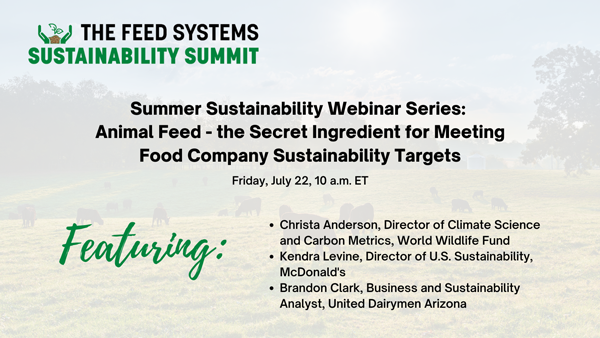
Written by: Lara Moody | July 12, 2022

Ever wondered what science-based targets really are or why they may be relevant to animal food? We’ve got a webinar opportunity for you to listen and learn.
Science-based targets identify a pathway for companies to reduce greenhouse gas (GHG) emissions to help prevent impacts of climate change and future-proof their business growth. Targets are considered ‘science-based’ if they are in line with what the latest climate science deems necessary to meet the goals of the Paris Agreement – limiting global warming to well-below 2°C above pre-industrial levels and pursuing efforts to limit warming to 1.5°C.
The forest, land and agriculture (FLAG) sector has been historically difficult to evaluate through GHG accounting and target setting approaches. Even so, FLAG represents about 25% of net anthropogenic GHG emissions (10–12 GtCO2e per year) with about half from agriculture and half from land use. A set of best practices for science-based target setting in the FLAG sector has now been developed. By using the FLAG tool and supporting guidance document, companies with FLAG-related emissions can now more easily set science based targets in line with a 1.5°C world.
As the food supply chain pursues science based targets and charts an emissions reduction path that includes emissions from input providers, where does the feed sector fit in and how can we support our end user and their customers?
To help answer these questions, and to further inform discussions for the September Feed Systems Sustainability Summit, the Institute for Feed Education and Research (IFEEDER) and World Wildlife Fund (WWF) are hosting the first installment of our summer webinar series on July 22. During this webinar, we'll discuss the? Science-Based Targets Initiative (SBTI) and the upcoming FLAG guidance for food and feed companies. We'll also hear from McDonald’s and United Dairymen Arizona on how feed fits into their science-based targets and implementation plans.
Make plans now to join us for the conversation.
Comments See our policy on comments